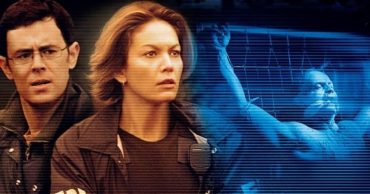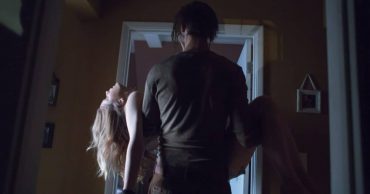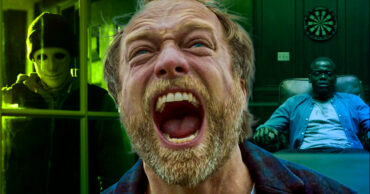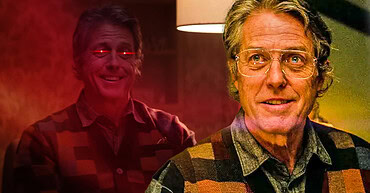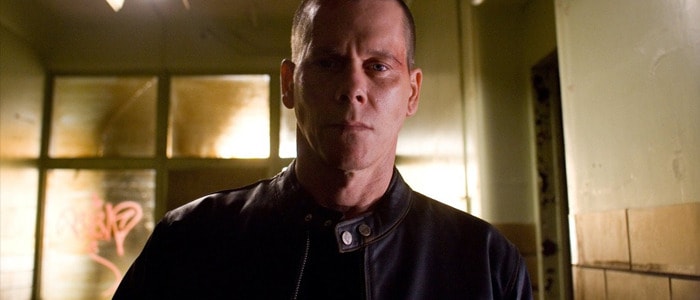
Eleven years before Bruce Willis would bring Death Wish back to a, hopefully, short reappearance, Kevin Bacon managed to take on the idea of avenging his family in a movie titled Death Sentence, which, in all honesty, was a little more satisfying and a probably a little more violent. The story is roughly the same, to be honest, and it’s just as brutal since Nick Hume, Bacon’s character, is a successful businessman who experiences the loss of his son during a gang initiation one night on their way home from his son’s hockey game. Where Death Wish was hard and sometimes prone to taking a hammer to a person’s feelings about revenge, Death Sentence takes turns the hammer around and starts prying at the sensibilities of the audience when it comes to how they might react to the loss of a loved one. In other words, Nick manages to come off as a much more realistic individual since the loss of his son nearly destroys him, but it also awakens something far more primal when the killer is let off without any serious punishment.
This kind of movie tends to get in your face while asking what you would do if someone took the life of a person you love while taunting you with the idea that revenge might be possible. Nick isn’t a perfect killer by the time he finally gets down to it since he’s still a businessman with a nice home, a nice life, and just the barest hint that he might have a killer buried beneath the suburban dad visage. His first kill comes when he takes out the individual that killed his son, though it comes by accident while fighting the individual, which is evident due to Nick’s reaction since he can’t believe what he just did and is visibly shaken for a while after. When the friends of the man find out that he’s dead, things tend to get worse as the leader of the gang, Billy, played by Garret Hedlund, is a ruthless individual that’s only bound by the whims of his father, played by John Goodman, who’s even more ruthless and only cares about what his son and gang can bring in while selling the drugs he peddles.
When Billy deduces that it was Nick who killed his friend, which isn’t too hard since the death of Nick’s son was placed in the paper in a glaringly huge article, he takes it personally and comes after Nick. When Nick manages to kill another gang member, however, showing that he’s more resourceful than the gang gave him credit for, Billy decides to up the stakes as he and his gang pay a visit to Nick’s home, where they kill Nick’s wife and put Nick and his other son in the hospital. Throughout this movie, it’s kind of easy to see the manner in which Nick is stripped of his suburban feel layer by layer, but the final excision of his supposedly perfect life is the most brutal since upon waking up in the hospital he makes the decision to stop waiting for things to happen. Visiting Billy’s father with a bag full of cash he buys several guns and a great deal of ammunition in order to take the gang out, as he visits one of them to ascertain the whereabouts of their drug lab before killing him.
He then makes his way to the drug lab, where a firefight ensues as he makes his way through the dilapidated old building that the gang has been using to cook and refine the product they sell. Amazingly, Nick makes his way through the place without a scratch until he reaches the small chapel that is located in the building, where he, Billy, and one other gang member played by Edi Gathegi have a final shootout. Nick is hit several times, as is Billy, but Bodie, Gathegi’s character, is taken out with a shot to the head as Nick and Billy both stagger over to the room’s only pew, where they have a final conversation before Billy dies, content with the knowledge that he turned Nick into a vicious killer like himself. This is a definite nod to the fact that the movie has been making a point the entire time, that when pushed, pretty much anyone can become an emotionless killer bent on revenge.
The edge that this movie has on Death Wish is pretty simple, there’s less frivolity and less dark humor to it. This movie is all business, and it’s not meant to be taken as something in which the protagonist is seen to screw around. Both movies have their message, but in Death Sentence, there’s a seriously dark angle that only leads further into the shadows without the need or desire for justification.
 Follow Us
Follow Us

